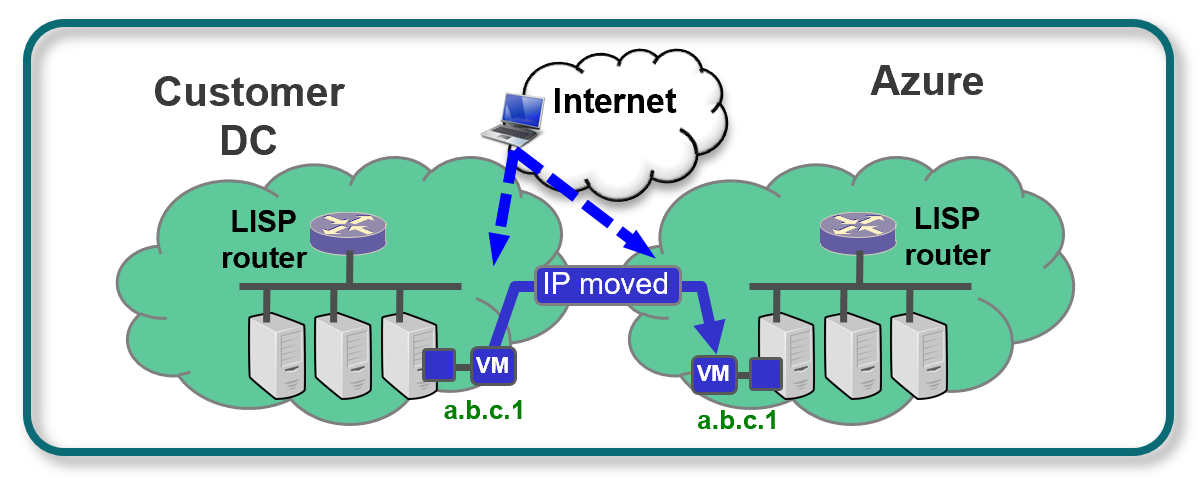Azure and LISP For Public IP Mobility

Introduction The Locator Identity Separation Protocol (LISP) is a routing architecture that creates a paradigm by splitting the device identity, known as an Endpoint Identifier (EID), and its location, known as its Routing Locator (RLOC), into two different numbering spaces. This capability brings renewed scale and flexibility to the network in a single protocol, enabling the areas of mobility, scalability, and security. For enterprises moving to Azure, LISP provides key benefits such as IP Mobility for Public IP Address Portability, Split Subnets during Data Center Migration, Geographic Dispersion of Data Centers and Disaster Recovery. This document focuses on LISP use cases addressing today’s enterprise data center use-cases moving customer-owned public IP space to Azure. Workload virtualization requires location independence for server resources and requires the flexibility to move these public IP resources from one data center to another to meet burst capacity, lift an...